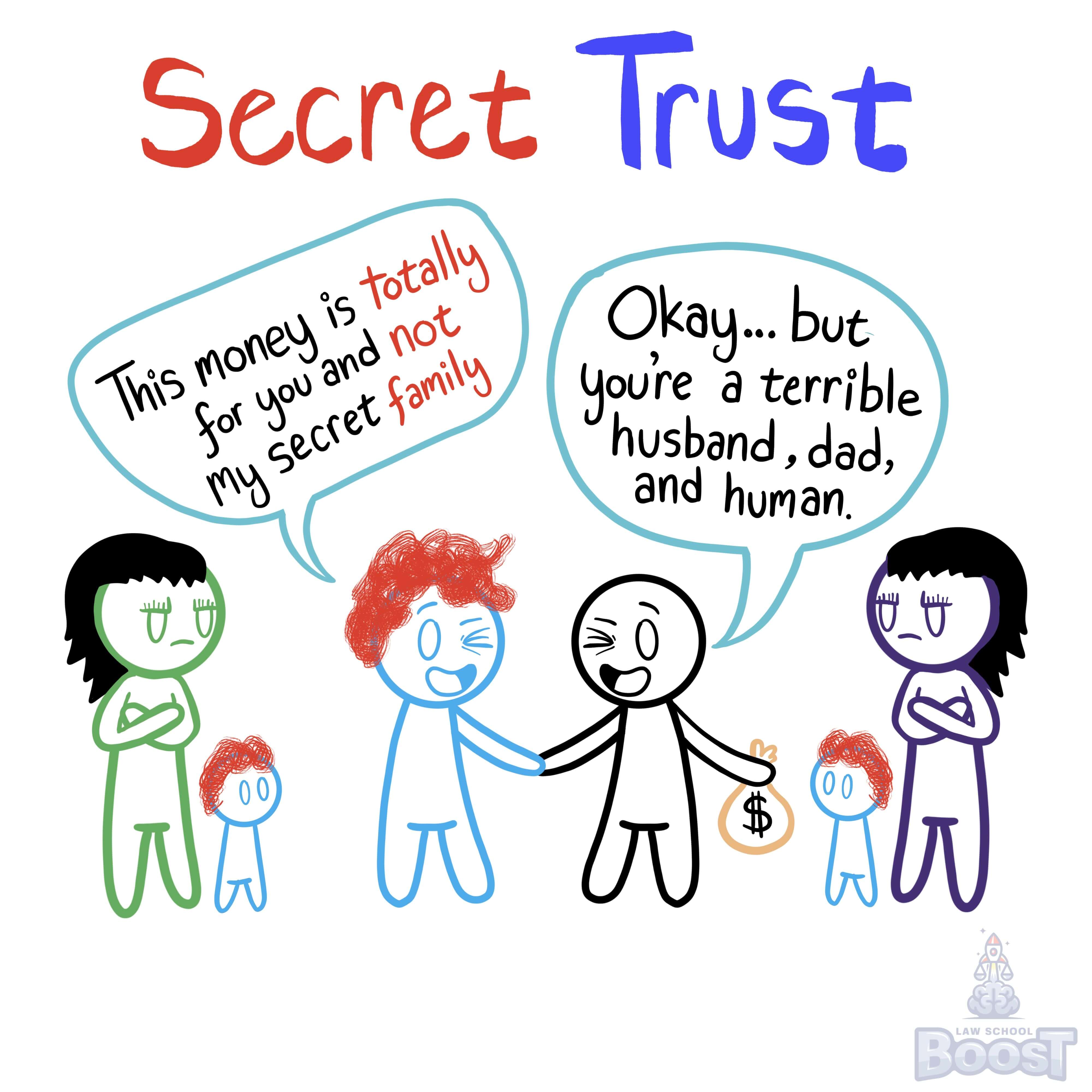🥺
Trusts • Express Private Trusts
TRUSTS#005
Legal Definition
A secret trust arises when a testator makes a gift in a will to a donee, intending that the donee should receive the gift as trustee for an ultimate beneficiary or beneficiaries, under an express or implied agreement between the testator and the donee, made outside the will.
Plain English Explanation
Secret trusts made more sense a long time ago and are rare these days, but they are still tested from time to time. To understand them, take a trip in your mental time machine back a few hundred years when having mistresses and illegitimate children could wreck a person's reputation.
So a long time ago, what do you do if you were a fancy, proper, socially respected man who wanted to provide for your children that were born while cheating on your wife? Well... if you included them in a will, everyone would find out you sucked as a human being because wills become public documents.
So, instead, you gift property in your will to a person that you have made a secret agreement with to use that property to help your kids/mistress/etc. Courts will allow evidence of these side agreements in order to establish a trust, rather than accepting the will as-is (which would simply give the property to the person identified in the will).
In other words, even though courts do not like these types of agreements, they would prefer to get the property to the beneficiary intended by the dead person rather than allow the person who received the property under the will to be unjustly enriched (which means getting something of value they did not earn).
So a long time ago, what do you do if you were a fancy, proper, socially respected man who wanted to provide for your children that were born while cheating on your wife? Well... if you included them in a will, everyone would find out you sucked as a human being because wills become public documents.
So, instead, you gift property in your will to a person that you have made a secret agreement with to use that property to help your kids/mistress/etc. Courts will allow evidence of these side agreements in order to establish a trust, rather than accepting the will as-is (which would simply give the property to the person identified in the will).
In other words, even though courts do not like these types of agreements, they would prefer to get the property to the beneficiary intended by the dead person rather than allow the person who received the property under the will to be unjustly enriched (which means getting something of value they did not earn).
Hypothetical
Hypo 1: Bob is married to Amy. One day, Bob has an affair with Jill. Jill ends up becoming pregnant and gives birth to Timmy. Jill doesn't want anything to do with Bob, so she decides to raise Timmy by herself. Years later, when Bob is approaching death, he reaches out to Jill and Timmy and lets them know he wants to provide for them after he dies, but he doesn't want Amy to know. He says he has made an agreement with Sam. Bob plans to leave Sam $100,000 upon his death, and Sam has agreed to give that money to Jill and Timmy. After Bob dies, Sam refuses to give $100,000 to Jill and Timmy. Jill takes Sam to court. Result: Bob has created a secret trust and the courts will allow Jill (and Timmy if he's old enough) to show evidence of an agreement between Bob and Sam to deliver the money to Jill and Timmy after Bob's death.
Visual Aids



